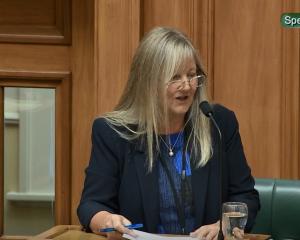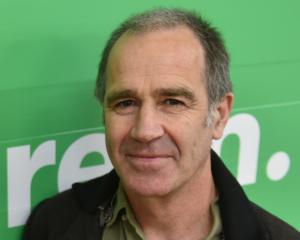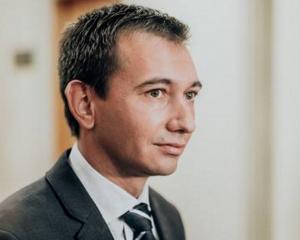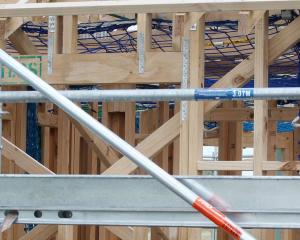In health, the election has become a bidding war focused on the new centre ground of free doctor visits.
National outmanouevred Labour in May with a Budget promise to extend free GP visits and prescriptions to children under 13 from next July, at a cost of $30 million a year. Until then, this had been the territory of the Greens -- and the Child Poverty Action Group, which wants the extension of the current free under-6s care to all school-aged children.
But now Labour has trumped National by adopting its under-13s policy and extending it to the elderly, at an additional cost of $120 million a year, including prescriptions.
More free care, including dental treatment, for pregnant women is among a cluster of promised Labour additions to free or low-cost primary care. The party says this would fund free GP visits for nearly 40 per cent of the population - up from 12 per cent now - and nearly 30 per cent would get low-cost visits.
The Greens want free primary healthcare for all children.
The idea of this state-funded largesse is to treat people earlier to keep them out of more-expensive hospital care, and there is some evidence to support this view.
Labour costs its primary care changes at $280 million a year, and claims the Government's increases in health funding have not kept up with the country's needs.
But the Government says it has managed efficiently in tight financial times, increasing health spending from $12.6 billion in 2009/10 to $15.6 billion this financial year - about $500 million a year including reprioritised spending.
New Zealand's spending on health rose by more than twice the average rate among countries in the Organisation for Economic Co-operation and Development from 2009 to 2011, according to OECD figures.
It was Labour in government a decade ago that introduced universal subsidies for primary healthcare, a sector in which state funding was previously more targeted.
Under Don Brash in 2005, National threatened to unwind the policy, but later relented.
Under Health Minister Tony Ryall, since 2008 subsidies have expanded for some but have been eroded by inflation for others. He has made the free-under-6s concept - introduced by Winston Peters in the late 1990s and achieved only partially under Labour - a widespread reality. More than 95 per cent of children in that age group now have access to free care, including after hours.
But there are stress cracks in primary care. Rises in patient fees permitted by district health boards since 2009 have exceeded inflation.
Labour cites a Statistics NZ brochure showing the average cost to adults for a GP visit has risen by 24 per cent under National, to $36.28 last year. No corresponding children's charge is given, but a Health Ministry survey found it was $21 in 2011/12 among children whose care attracted a fee, while for 55 per cent there was no charge.
A Child Poverty Action Group survey last year found the average cost for a child aged 6 to 17 to visit a GP during office hours was $24. Individual charges ranged from zero to $60.
After hours the average fee was $44, and the range from zero to $89.
The ministry's annual survey last year found 6.3 per cent of children had missed out on a GP visit because of the cost in the preceding year - up from 4.8 per cent in one year. Labour claims there was an increase for adults too; the ministry report indicates there may have been an increase, but it was not statistically significant.
Labour also claims there is a "rising number of people turning up to emergency departments because they can't afford to see a GP" - and there is some evidence at least of rapidly increasing demand at EDs although the reasons are not clear.
A doctor/manager admitted in papers for the Auckland District Health Board that, even before the annual surge caused by winter illness, its adult emergency department was "struggling" to meet the Government's six-hour target for managing patients.
"The ED is geared to manage 160 patients daily but in effect has been managing in excess of 200 patients regularly in recent months."
Mr Ryall's six targets - EDs, elective surgery, cancer treatment, immunisation, urging smokers to quit, and heart and stroke risk checks - mark out his main achievements.
The groundwork for the big increase in child immunisation was laid under Labour, but it is Mr Ryall's tight focus on headline targets - Labour calls it his "obsession" - that has driven change, especially in ED times and increased amounts of elective surgery.
The amount of elective surgery increased in most of Labour's nine years in power, but fell in some years.
Under National, elective surgery has surged. About 158,000 patients were treated last year, a 34 per cent increase in five years, which was far greater than the population growth rate. Further increases are promised, with an extra $110 million committed over four years.
Despite this, a survey for the health insurance industry estimated last year that 280,000 people were "in need of elective surgery".
The industry says the public system cannot cope and needs private sector help, partly because of an ageing population needing more surgery and the decline, triggered by the recession, in the number of people with insurance.
Mr Ryall's cancer target has reduced waiting times for treatment, and he has funded a four-year trial of bowel cancer screening in Auckland's north and west, building on an idea proposed by Labour.
Labour leader David Cunliffe has promised to build the Waitemata scheme into a national programme, at an initial cost of $14 million a year.
His party says New Zealand - which has one of the world's highest bowel cancer death rates - is lagging behind many developed countries in not having a national screening programme, which could save up to 180 lives a year.
National will wait for the Waitemata results before making a decision on a national programme.
Population health - covering the likes of obesity, healthy eating and exercise - is another area traditionally the heartland of Labour and the Greens.
But National has shored up many of its weaknesses here with schemes such as the rheumatic fever prevention programme and child immunisation improvements.
Huge changes have occurred on tobacco control, thanks to MMP, Maori Party co-leader Tariana Turia and Internet-Mana Party co-leader Hone Harawira.
The percentage of people who smoke had dropped to 15 per cent by last year, from 21 per cent in 2006. Tobacco tax increases, the retail display ban and the proposal for plain packaging have had wide support in Parliament.
Some public health practitioners have not fully recovered from National's rapid abolition of many of Labour's efforts to improve the country's food "environment".
National's instinct is the educational approach rather than confronting the food industry, although many experts agree this is unlikely to reduce New Zealand's obesity problem - we are the third most obese of OECD nations.
Our adult obesity rate rose from 27 per cent in 2006/7 to 31 per cent last year. Child obesity rose from 8 per cent to 11 per cent.
Labour would pass the Public Health Bill, which gives wide powers to control the food supply to address diseases in which food is a factor.
The Greens would require all food and drink sold in schools to be nutritious and want a levy on "fizzy/soft drinks" that would later be imposed on "other products that cause significant health problems".
National, although opposed to regulating food for the sake of obesity, has adopted an Australian scheme that has won praise from one of the Government's chief public-health critics, Professor Boyd Swinburn.
The Budget in May committed $40 million for the Healthy Families initiative to operate for four years in 10 communities, including two in South Auckland and one in the city's west.
Professor Swinburn said the scheme in Victoria involved talking to school principals and other leaders about "how levers can be pulled to make it healthier for kids", such as by altering the food available.
- by Martin Johnston, NZ Herald












